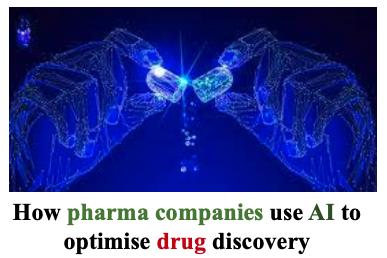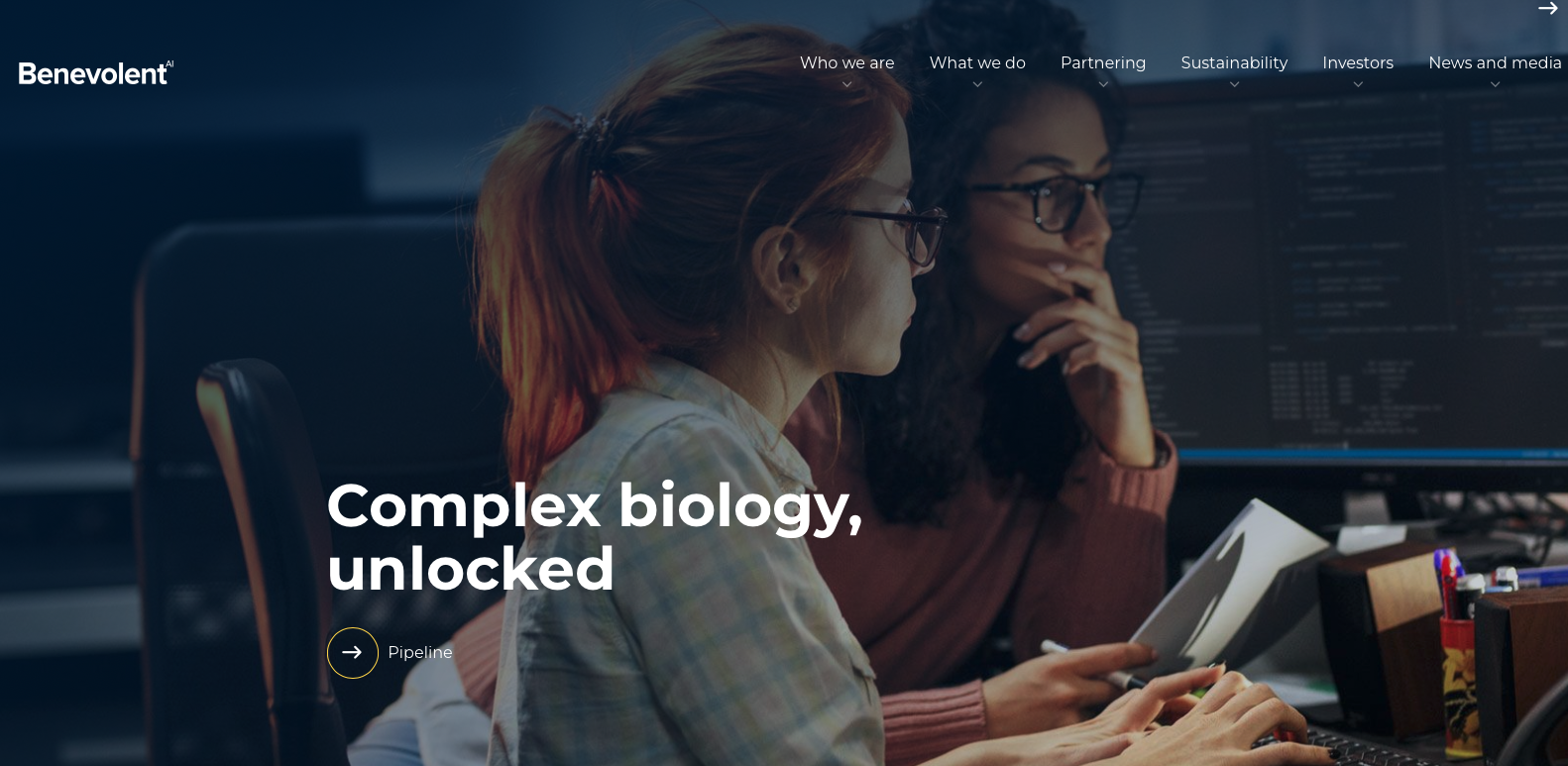How pharma companies use AI to optimise drug discovery
As a data scientist with several years of experience working in the field of artificial intelligence (AI), I've had the opportunity to see some incredible applications of this technology. One area where AI has made significant progress is in the pharmaceutical industry, specifically in drug discovery.
An ordinary person may not know this, drug discovery is a difficult, expensive, and time-consuming process. Traditionally, bringing a single drug to market could take up to 15 years and billions of dollars. However, AI is rapidly changing this scenario, breathing new life into the drug discovery process while significantly lowering costs and shortening the timeline. Let’s see how.
The AI Advantage in Drug Discovery
AI can analyse massive amounts of data at breakneck speed, allowing it to identify patterns and make predictions that humans might overlook or take much longer to discover. This is especially useful in the early stages of drug discovery when identifying potential drug targets and compounds can be as difficult as finding a needle in a haystack.
Atomwise, an AI startup, for example, used its AI platform to examine existing medicines that could be redesigned to treat the Ebola virus. Within one day, the AI system scanned over a billion compounds and identified two drugs that could significantly reduce Ebola's infectivity.
AI in Target Identification
AI can aid in the discovery of new drug targets, or the locations in the body where a drug will act. DeepMind's AlphaFold AI system, for example, predicts the 3D structures of proteins with remarkable accuracy. Understanding the structure of a protein is critical for determining how it functions and how it can be targeted with drugs.
This was demonstrated when AlphaFold was used to predict the structure of proteins associated with the virus that causes COVID-19, SARS-CoV-2. These forecasts aided researchers in better understanding the virus and developing potential therapeutic strategies than traditional methods could.
AI in Lead Optimization
Once potential drug candidates have been identified, they must be refined or 'optimised' to improve efficacy while minimising side effects. Artificial intelligence can be used to predict how changes to a drug's chemical structure will affect its properties. This speeds up the optimization process and lowers the risk of costly failures later on.
BenevolentAI, a British company, for example, uses AI to predict how different compounds will behave in the human body. This method assisted them in identifying an existing drug, baricitinib, which was later shown in clinical trials to be an effective COVID-19 treatment.
AI in Clinical Trials
Clinical trials are an important stage in drug development because they test a drug's safety and efficacy in humans. Artificial intelligence can help with patient recruitment, monitoring, and data analysis. It can also help predict patient responses to a drug, improving trial design and efficiency.
IBM Watson's use in clinical trials for cancer treatment is a notable example of this. Watson was able to analyse patient data and match patients to appropriate clinical trials, reducing patient recruitment time and improving trial efficiency.
Real-life Success Stories of AI in Drug Discovery
The success of AI in drug discovery is no longer hypothetical; it is here and producing tangible results. Let's look more closely at some real-life success stories.
In April 2023, the German biotechnology company Evotec announced a phase 1 clinical trial on a new anticancer molecule in collaboration with Exscientia, a company based in Oxford, UK. Exscientia's 'Centaur Chemist' AI design platform was used to find the candidate. This AI system was able to sort through and compare the properties of millions of potential small molecules in only 8 months, a process that would normally take 4-5 years using traditional methods.
Exscientia is just one of many companies using artificial intelligence for drug discovery. Bristol-Myers Squibb, Sanofi, Bayer, GlaxoSmithKline, Roche, and the University of Oxford have formed drug discovery collaborations with the company. It has already announced the entry of two molecules designed with AI into clinical trials, one for obsessive-compulsive disorder and the other for oncology.
Technology companies such as IBM, Microsoft, and Google have begun to venture into the AI drug discovery space, providing robust technology and resources to aid in this revolutionary endeavour.
Pharmaceutical companies are recognising the potential of artificial intelligence and are investing in and collaborating with AI companies to address the challenge of new drug development. Jim Weatherall, AstraZeneca's VP of data science and AI R&D, stated that collaborations between pharma companies and AI companies are "definitely blossoming across the industry.
AstraZeneca, for example, announced a collaboration with BenevolentAI in 2019 to develop new drugs for chronic kidney disease and idiopathic pulmonary fibrosis, a serious lung disease. BenevolentAI's computers predicted a new drug target for chronic kidney disease, which AstraZeneca's experiments later validated.
The Future is AI
The examples above show how AI is already having a significant impact on drug discovery, transforming what was once a time-consuming and costly process into one that is more efficient and streamlined. But this revolution is still in its early stages. We can expect even more impressive advances in drug discovery and development as AI evolves and improves. AI is the future of pharmaceutical research, not just humans.
It's an exciting time to be involved in this field, whether you're a data scientist, a healthcare professional, or just an interested observer. AI is changing not only the way we discover drugs but also how we think about healthcare and the potential of technology to improve lives.
Stay tuned as we continue to investigate AI's role in drug discovery and beyond. The AI revolution is just beginning, and its impact on the pharmaceutical industry will undoubtedly be profound.
This article demonstrates the power of AI and its potential to transform the pharmaceutical industry. The future has arrived, and it is brighter than ever thanks to artificial intelligence.
The Challenges Ahead
While artificial intelligence holds great promise for revolutionising drug discovery, it is not without its challenges. These include concerns about data privacy, the need for large, high-quality datasets, and AI model interpretability. Overcoming these obstacles will require a collaborative effort from scientists, regulators, and policymakers.
The examples above show how AI is already having a significant impact on drug discovery, transforming what was once a time-consuming and costly process into one that is more efficient and streamlined. But this revolution is still in its early stages. We can expect even more impressive advances in drug discovery and development as AI evolves and improves. AI is the future of pharmaceutical research, not just humans.
It's an exciting time to be involved in this field, whether you're a data scientist, a healthcare professional, or just an interested observer. AI is changing not only the way we discover drugs but also how we think about healthcare and the potential of technology to improve lives.
Stay tuned as we continue to investigate AI's role in drug discovery and beyond. The AI revolution is just beginning, and its impact on the pharmaceutical industry will undoubtedly be profound.
Conclusion
Artificial intelligence (AI) is proving to be a powerful tool in the pharmaceutical industry's arsenal, transforming the landscape of drug discovery. The potential for faster, more efficient drug discovery processes is within our grasp as we continue to refine these technologies and navigate the challenges. As a data scientist and an active participant in the AI revolution, I can confidently state that we are only scratching the surface of its potential applications and impact.



